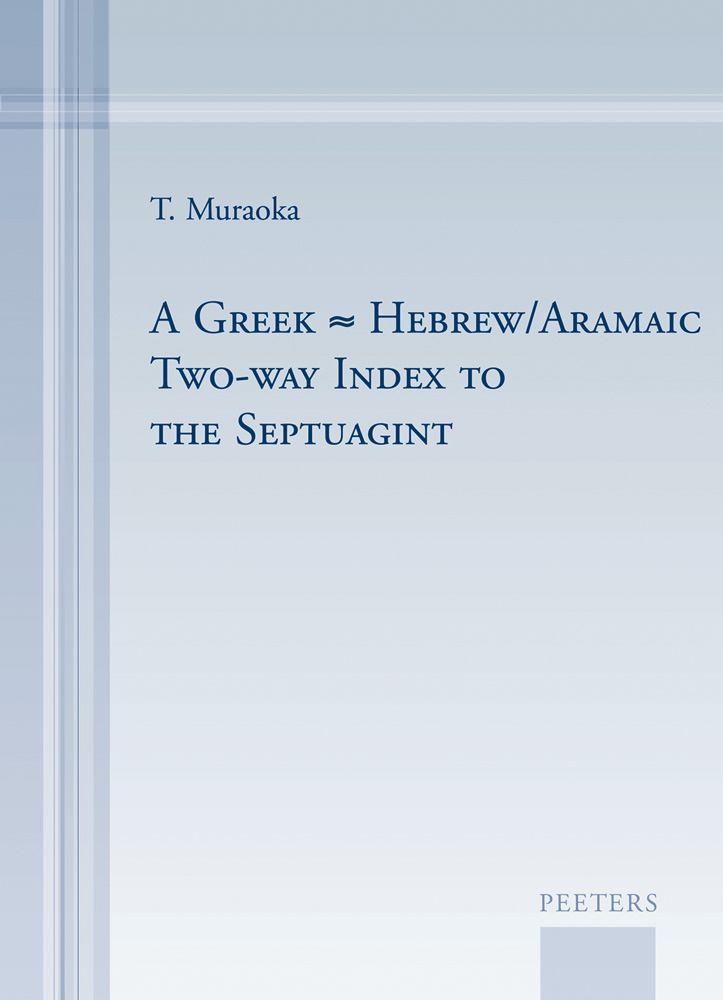
A Greek-Hebrew/Aramaic Two-Way Index to the Septuagint
by T. Muraoka
ISBN-10: 9042923563
ISBN-13: 9789042923560
$75.00
Book Specs
Binding
Trade Cloth
Publisher
Peeters Publishers
Published on
Jul 16, 2010
Edition
1st Edition
Dimensions
7.60x0.90x11.00 Inches
Weight
2.50 Pounds
About the Book
Part I of this two-way index for the Septuagint shows which Hebrew/Aramaic word or words corresponds or correspond to a given Greek word in the Septuagint and how many times such an equation applies. This information was provided to a certain extent in the author's two earlier editions of the Greek-English Lexicon of the Septuagint (Leuven: Peeters, 1993, 2002). In its latest edition covering now the entire Septuagint, A Greek-English Lexicon of the Septuagint (Leuven: Peeters, 2009), this information has been totally deleted, and is presented here in its entirety. Part II enables scholars to see at a glance what Greek words were used by the Septuagint translators to translate the Hebrew and Aramaic words occurring in the Old Testament. This is an entirely revised version of the author's Hebrew/Aramaic Index to the Septuagint Keyed to the Hatch-Redpath Concordance (Grand Rapids, Michigan: Baker Books, 1998), now out of print. This replaced a Hebrew Index printed as an appendix to the Hatch-Redpath Concordance, which only gave page references of the Concordance for each Hebrew/Aramaic word. In order to find actual Greek words used to translate a given Hebrew/Aramaic word one had to leaf through the concordance itself. This is not a mere reprint of the 1998 Index. Both parts of this Index are based on an extensive, critical review of the data as presented in the Hatch-Redpath concordance. Moreover, it incorporates data totally left out of account by Hatch-Redpath such as the apocryphal book of 1Esdras and includes Dead Sea biblical manuscripts, not only manuscripts of the canonical books, but also an apocryphal book such as the Aramaic fragments of Tobit. Furthermore, the Index, just as the author's Lexicon, took into account data found in the alternative versions of books such as Daniel, Esther and Tobit, and the so-called Antiochene or Proto-Lucianic version of the books such as Judges, Samuel, Kings, and Chronicles. The Index would be a valuable instrument for not only Septuagint specialists, but also scholars interested in Greek, Hebrew, Aramaic philology, the textual criticism of the Old Testament, and New Testament scholars. This is an essential companion volume for users of Hatch-Redpath's Concordance and the author's Septuagint Lexicon.
